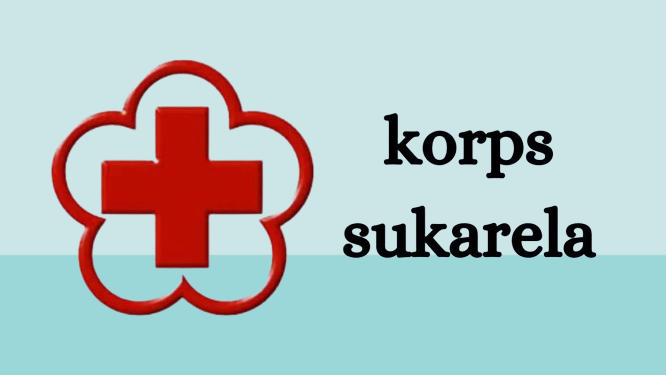Operating under the auspices of the Indonesian Red Cross (Palang Merah Indonesia or PMI), the Korps Sukarela embodies the spirit of volunteerism, dedicating itself to humanitarian service across the country. This article delves into the history, structure, activities, and significance of the Korps Sukarela, exploring its vital role in strengthening Indonesian communities.
A Legacy of Service: The History of Korps Sukarela
The roots of the Korps Sukarela can be traced back to the early 20th century, coinciding with the rise of the national independence movement. Inspired by the international Red Cross movement, Indonesian medical students formed the “Perkumpulan Pemuda Pelajar Indonesia” (Association of Young Indonesian Students) in 1916. This association, later renamed the “Perhimpunan Pelajar Indonesia” (Indonesian Student Association), actively participated in providing medical aid during the struggle for independence.
Following Indonesia’s independence in 1945, the PMI was formally established, and the Korps Sukarela became an integral part of its structure. Initially, the Korps Sukarela focused primarily on first-aid training and medical assistance. However, over time, its scope expanded to encompass a wider range of humanitarian activities, including disaster relief, blood donation drives, social welfare programs, and community development initiatives.
Structure and Membership: Building a Network of Volunteers
The Korps Sukarela operates on a hierarchical structure, with units established at various levels:
- Unit Kegiatan Khusus (UKK) Korps Sukarela PMI: These units are formed within educational institutions, primarily universities and high schools. UKK Korps Sukarela PMI members are students who undergo regular training in first aid, disaster preparedness, and humanitarian principles.
- Korps Sukarela PMI Kabupaten/Kota (District/City Level): These units coordinate the activities of UKK Korps Sukarela PMI within their respective districts or cities.
- Korps Sukarela PMI Provinsi (Provincial Level): These units oversee KSR activities at the provincial level and collaborate with the national PMI headquarters.
- Korps Sukarela PMI Pusat (National Headquarters): Located in Jakarta, the national headquarters provides overall leadership, guidance, and training to KSR units across Indonesia.
Membership in the Korps Sukarela is open to anyone interested in volunteering and serving their community. However, UKK Korps Sukarela PMI primarily comprises students who undergo a rigorous selection process involving interviews, medical examinations, and basic training in first aid and humanitarian principles.
Activities and Impact: The Many Facets of Korps Sukarela Service
The KSR is renowned for its diverse range of activities, all geared towards alleviating suffering and fostering a more resilient society. Here are some key areas of KSR involvement:
-
Disaster Relief: Korps Sukarela volunteers are at the forefront of disaster response efforts, providing first aid, search and rescue operations, distribution of relief supplies, and setting up temporary shelters. Their swift mobilization and local knowledge prove invaluable during natural disasters like earthquakes, floods, and volcanic eruptions.
-
Blood Donation Drives: Korps Sukarela plays a crucial role in promoting blood donation awareness and organizing blood donation drives across Indonesia. These drives ensure a steady supply of blood for hospitals and medical emergencies.
-
Health Education and Promotion: Korps Sukarela volunteers actively engage in health education campaigns, promoting awareness about hygiene, sanitation, disease prevention, and healthy living practices within communities.
-
Social Welfare Programs: The Korps Sukarela extends its reach to vulnerable communities by providing assistance to the elderly, orphans, and people with disabilities. This may include food distribution, medical care support, and awareness programs on social issues.
-
Community Development Initiatives: Korps Sukarela volunteers participate in community development projects aimed at improving infrastructure, promoting environmental sustainability, and fostering disaster preparedness within local areas.
The Significance of Korps Sukarela : Beyond Humanitarian Service
The Korps Sukarela impact extends far beyond its direct humanitarian interventions. It serves as a crucial platform for youth development:
-
Building Leadership and Teamwork Skills: Korps Sukarela training programs equip members with valuable leadership, teamwork, communication, and problem-solving skills.
-
Developing a Sense of Social Responsibility: Through active volunteerism, Korps Sukarela members cultivate a strong sense of social responsibility and empathy towards others.
-
Promoting National Unity: Korps Sukarela brings together volunteers from diverse backgrounds, fostering a sense of national unity and collaboration.
-
Creating a Culture of Volunteerism: The Korps Sukarela dedication inspires others to embrace volunteerism, creating a ripple effect of positive social change.
Conclusion:
The Korps Sukarela stands as a testament to the unwavering spirit of volunteerism that exists within Indonesian society. Through their tireless efforts, Korps Sukarela volunteers provide critical support during emergencies, promote health and well-being, and empower communities. As Indonesia continue
